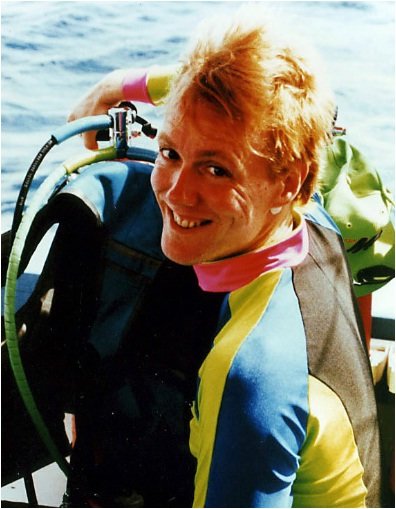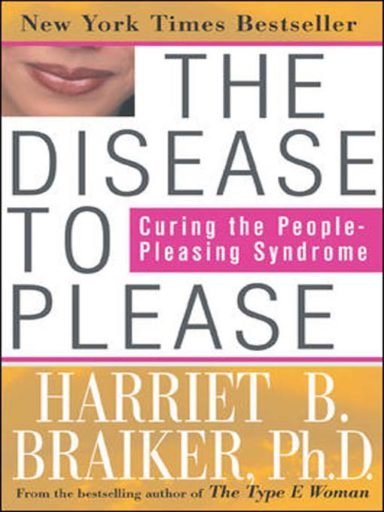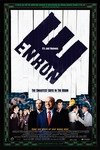
“Neurosis is the way of avoiding non-being by avoiding being.” -Paul Tillich
There are so many ugly things we use denial for in the world: Recognizing you don’t love somebody as much as they love you. Dealing with not being loved by a parent. Facing the fact that your fifty-five year old partner has the chronic pain and the body of an eighty year old. Running out of patience caring for both a parent with Alzheimer’s and your own children. Surviving an earthquake or flood that leaves your home looking like a war zone. Kissing your boyfriend goodbye for his third tour of duty while fully recognizing that statistically the danger goes up with each repeated trip to the battlefield.
There are enormous numbers of tragedies in the world that people endure. Tragedy is an integral part of life and no one escapes it. Being in denial is all about not accepting the dark side is part of our lives.
The Disney version of fairy tales really erases the glimpses of reality that the Grimm Brothers included in their writing. In the real tale of Cinderella, her step-sister chops off her toes to fit in the glass slipper – a peek into the ability of raw greed to distort a human being. This is what the original version offered, which is now actively denied.
Reality is best served ‘light’ in today’s culture, safely contained on a television screen.
As a culture, young people want to feel good quickly so they leap into sex, avoiding all the awkwardness inherent in dating. Middle aged people spend money they don’t really have, avoiding all the unpleasantness inherent in saving for their retirement. Obesity is an epidemic. It’s all about feeling good right NOW. Denial is active in all of these pursuits.
There is an alarming amount of secret sadism on the internet. The Web’s anonymity allows you to avoid consequences for behavior that within a civil society would bring scorn and punishment. You can bully someone, mock a rape victim or defame a sports icon all essentially without becoming known and suffering the consequences of irresponsible, hurtful or libelous behavior. Denial can bring out the worst in who we are.
Technology allows someone’s dark side to spill out lacking any ownership. Denial is a massive cultural habit that for many is a knee-jerk reaction to situations they have little knowledge of and plenty of opinions.
Back in the late 80’s and early 90’s AIDS was a plague and many young people, mostly young men, died. My best friend Patrick had visited his family and one of his three sisters asked him if he had AIDS. He answered honestly, that he did. In denial, she never asked him any more about it and when he died at St. Vincents’s Hospital in New York’s Greenwich Village she was wracked with guilt.
I felt very sad for her because she had held the truth in her hands but let it slip out through her fingers. She could have exploited her knowledge to make a special place in her life for her brother knowing he had so little time left, knowing what no one else in the family knew. Instead denial robbed her of the opportunity.

After more than thirty-five years of working with people, I find that it remains for me an elegant business to help people face hard, difficult realities. People will feel ‘attacked’ by the harsh truth that they were in denial about, no matter how carefully it is delivered.
Denial is poisonous and everywhere: No, it is not OK to expect your partner to be celibate just because you want to. It can be heroic to survive as a parent through a child’s adolescence. Sitting down and agreeing on a budget can really matter. Understanding and accepting that you have the disease of an anxiety disorder can help explain why you avoid job hunting, new experiences and the unfamiliar.
Find your courage to give up denial, face reality and all of it’s hard edges. By doing so you’ll be better equipped to carry your own burdens with greater grace. Authenticity means a richer life in relationships.
Fantasy:
It is remarkable how much real life connection is avoided because being lost in fantasy is far more appealing. The fantasy that a former high-school boyfriend who finds you on the internet is much more nourishing than the stale relationship at home. The fantasy that you ‘own’ the rights to your adult children on the holidays even after they have partners and in-laws. The fantasy that you can keep your child safe if you micro manage their lives. The fantasy that pornography can make up for the lack of a sex life.
Fantasy is a way to avoid and deflect doing the hard work of solving one’s own problem in real life.
Only 3 contemporary examples:
- Col. el-Qaddafi of Libya tells ABC News that his people “love me” despite their uprisings and he refuses to take responsibility for his crimes.
- Charlie Sheen claims the Alcoholics Anonymous manual was “written for normal people, people that aren’t special, people that don’t have tiger blood, you know, Adonis DNA.”
- Bob Herbert writes in the NYTimes: “America will never get it’s act together until we recognize how much trouble we are really in, and how much effort and shared sacrifice is needed to stop the decline. Only then will we be able to begin resuscitating the dream.”
Facing the hard bits of life is far more difficult in the short term than fantasy is. If more couples were capable of dialogue instead of dead-end parallel monologues divorce rates would plummet. Honest dialogue can make you a real team able to face adversity together.
Feed the Truth Instead of
Feeding the Distance
to Find Out if Distance is
What You Really Want
Denial is about secrets from yourself & others. Secrets destroy relationships.
Therapy isn’t working very well unless you are able to go home to people you love and be more authentic. The therapist is someone you should practice the truth with. If you can’t do that with your therapist you’re wasting your time. Find someone else.
Conflict & Anger:
Too many people are in denial about their own anger. These are the same people who are often confused about what they want in life. Underneath anger are not only hurts but also wants.
There is purpose to this maligned emotion. Anger does not have to be big, bad and ugly. If you are someone who feels lost and unsure then it would benefit you to notice when you are annoyed or mildly irritated, then figure out the want buried beneath.
Anger has meaning as an emotional tool. It proclaims “I am important too.” Most people take it too far, “I am the only one that matters.” Connecting with anger can help anxious people take up more space instead of silently grinding their teeth. If they learn to speak up they are a part of preventing a relationship from being lopsided and unfair.
Swallowing your anger and using denial is a way to erase yourself.
Excuses:
Excuses are lies we not only tell others, they are often lies we tell ourselves. Making excuses is an inherent part of avoiding & denial. Excuses are a way of taking the easy way out.
Many excuses are all about people pleasing. Denial of self means making everyone else happy.
 Consider reading a book by Harriet Braiker called The Disease To Please: Curing the People-Pleasing Syndrome . So many times people pleasing involves lying to others so they will be happy with you. Telling people what they want to hear is an inauthentic way to be liked, which over time has great personal cost.
Consider reading a book by Harriet Braiker called The Disease To Please: Curing the People-Pleasing Syndrome . So many times people pleasing involves lying to others so they will be happy with you. Telling people what they want to hear is an inauthentic way to be liked, which over time has great personal cost.
“I didn’t want to hurt them.” is all too ordinary an excuse and you have begun the path of denial.
“Yes, but” is another game people play. They want the appearance of being agreeable. The “but” always erases the “Yes”.
So in truth, there is no real “Yes”. It’s the second half of the sentence that contains the true meaning. “Yes, I’d like to go but that’s the night I do my laundry.” “Yes, but” is a hidden excuse.
Children:

Hiding a pet’s death from your children makes no sense at all. It’s a chance for them to learn about grief before they experience the loss of a grandparent or other significant person in their life. It is too much denial & secrets that overwhelm children.
On the other hand, a divorced woman who makes sure her teens know their father had an affair is simply a setup for the kids to take sides. The more complex truth is that Mom is in denial because they had big problems before the affair, & the affair was a consequence of not dealing with the problems.
Grown kids need to set boundaries with their parents. Deflecting the hard work of boundary setting leads to parents feeling entitled to manage your life, to make sure you don’t marry the ‘wrong’ person. That is your own mistake to make and no one else’s. While offering an opinion is fine, trying to force you to accept it isn’t.
If you avoid creating boundaries then you will tend to live the life others want for you, not the one you want for yourself. You need to find your own voice and then use it.
It is choicefulness that makes you mentally healthy.
Movies
Denial is the most powerful force in the world, more powerful than love or hate.
 Water (2006) An 8 year old widow forced to live in an ashram of deprivation and poverty in 1938 India. Another widow finds the courage to interrupt her own denial and denial of the culture at large, to help the 8 year old.
Water (2006) An 8 year old widow forced to live in an ashram of deprivation and poverty in 1938 India. Another widow finds the courage to interrupt her own denial and denial of the culture at large, to help the 8 year old.
 Enron: The Smartest Guys in the Room (2005) This terrific documentary of Enron’s downfall is a case study in denial by an entire organization.
Enron: The Smartest Guys in the Room (2005) This terrific documentary of Enron’s downfall is a case study in denial by an entire organization.
 Capote (2005) Phillip Seymour Hoffman as Truman Capote convinces himself & the murderer he is his friend & then clearly he needs Clifton Collins Jr. to die to advance his own work. Truman also demonstrates how to be a complete narcissist.
Capote (2005) Phillip Seymour Hoffman as Truman Capote convinces himself & the murderer he is his friend & then clearly he needs Clifton Collins Jr. to die to advance his own work. Truman also demonstrates how to be a complete narcissist.
 Good Bye Lenin (2004) A movie that makes two wonderful points: How easily an entire family can cooperate in illusions that become “normal.” How a son has misplaced loyalty to a mother who doesn’t deserve it. One of 2003’s best foreign films.
Good Bye Lenin (2004) A movie that makes two wonderful points: How easily an entire family can cooperate in illusions that become “normal.” How a son has misplaced loyalty to a mother who doesn’t deserve it. One of 2003’s best foreign films.
 Memento (2001) A movie that begins with the ending, it is a profound tribute to the power of how we pretend about the truth to ourselves and get lost in the quicksand of our lies.
Memento (2001) A movie that begins with the ending, it is a profound tribute to the power of how we pretend about the truth to ourselves and get lost in the quicksand of our lies.
Homework
Make a “report card” of your primary relationship & begin conversations with your partner about how it could be improved & what works.
If you brought more courage to work, imagine how you would be different & what you might say. Apply this to other situations in your life.
Stop & consider what you might be avoiding in your life that’s hard to face. Do you need to return to college to get a better job? Are you a Mom who shouts too much at her kids? etc.
Books
Crucial Conversations: Tools for Talking When Stakes Are High
Death Without Denial, Grief Without Apology: A Guide for Facing Death and Loss
Denial: Why Business Leaders Fail to Look Facts in the Face—and What to Do About It
Difficult Conversations: How to Discuss What Matters Most
The Elephant in the Room: Silence and Denial in Everyday Life











